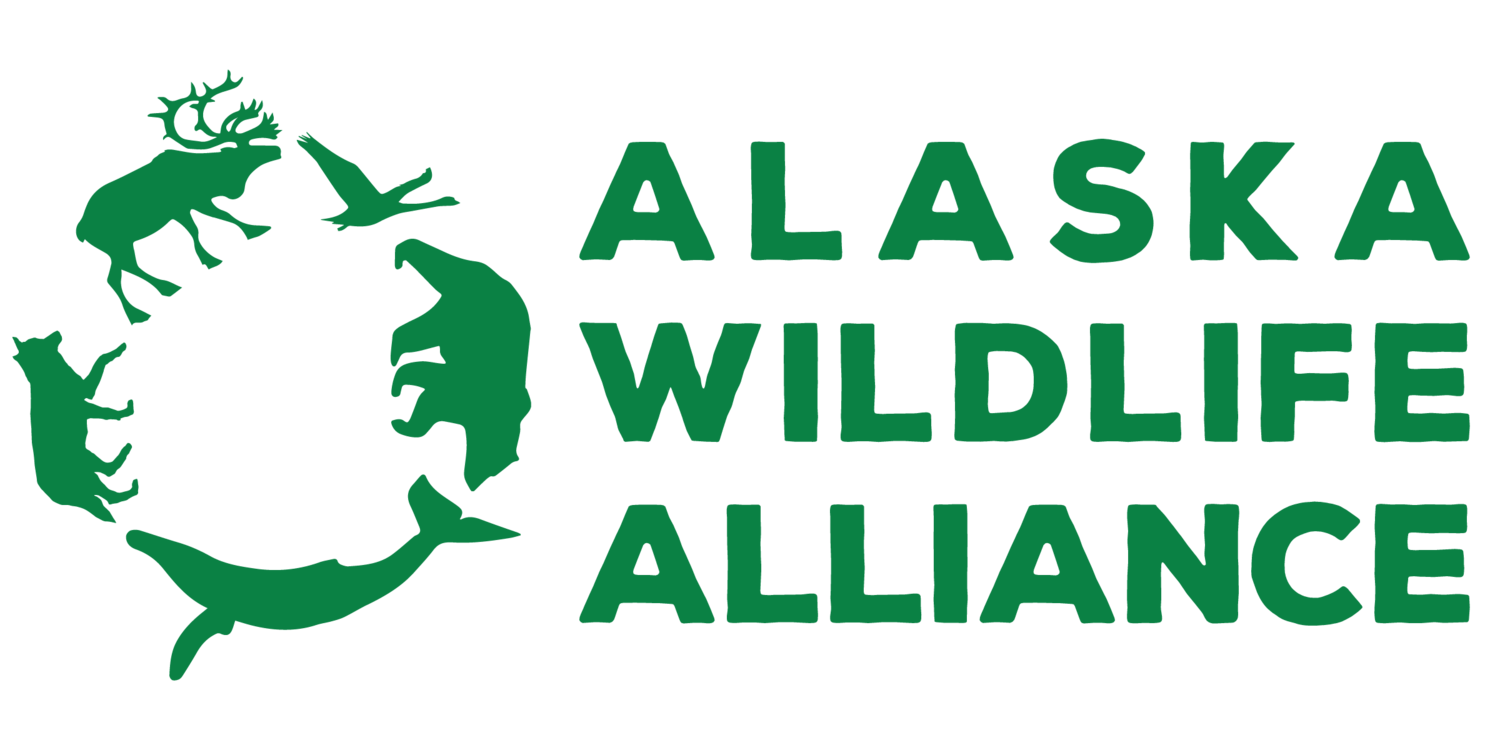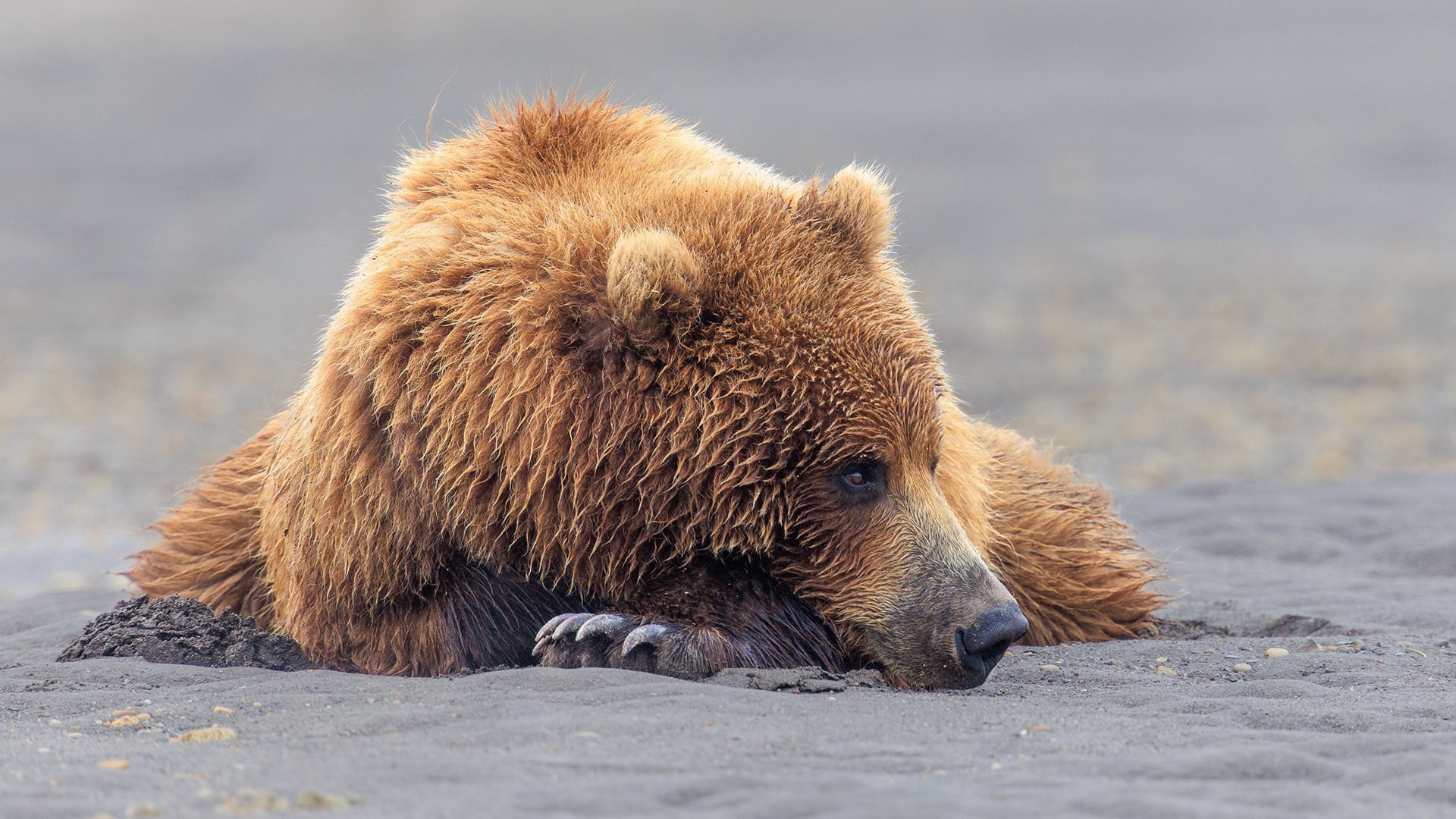Today, ten groups, including Alaska Wildlife Alliance, filed an amended and supplemental complaint against Ambler Road, represented by Trustees for Alaska. We argue that agencies violated numerous laws and acted beyond their legal authority when they reinstated unlawful permits for the proposed Ambler road.
Action Alert: Strengthen Protections for National Wildlife Refuges
Opinion: Lamenting the state’s kill of Wood-Tikchik Park bears
Our Comments on the Arctic Board of Game Proposals
Our Comment on the Ambler Road
Protect the Western Arctic Caribou Herd in Less Than 5 Minutes!
Tell BLM TO SELECT THE “NO ACTION” ALTERNATIVE
The state of Alaska is planning on building an industrial access road, known as the Ambler Road, along the southern Brooks Range. Why? To transport ore from a network of planned open pit copper mines in the northwest arctic.
Where is the proposed road?
The road would cross an area managed by the National Park Service, including 16 million contiguous acres, the largest in the country. This acreage includes Gates of the Arctic National Park and Preserve, Kobuk Valley National Park, Noatak National Preserve, Bering Land Bridge National Preserve, and Cape Krusenstern National Monument. These lands encompass a continuous ecologically intact landscape covering the western Brooks Range. This acreage alone is larger than the top 10 largest national parks in the contiguous U.S. combined — Death Valley, Yellowstone, Everglades, Grand Canyon, Glacier, Olympic, Sequoia, Big Bend, Joshua Tree and Yosemite — plus the state of Connecticut!
How would wildlife be impacted?
The landscape is also home to the Western Arctic Caribou Herd with more than 180,000 animals, making it one of the largest populations of caribou in North America. This herd travels up to 2,700 miles every year, the distance of Seattle, Washington, to Miami, Florida.
The proposed road, cutting from east to west across the north-south migration route of the caribou, could pose a serious barrier for the herd in its annual journey. There is scientific concern that the caribou would avoid the road and the industrial traffic along it, moving further west and away from Alaska Native villages that depend on the caribou for traditional subsistence use. If the road were to ever become public, it would put significant hunting pressures on the herd, further disrupting the historic migration patterns.
The road is just one piece to a larger story of industrialization of Northwest Alaska. The road would literally pave the way for the Ambler Mining District, which would only accelerate further development and activity that caribou would seek to avoid. Meanwhile, the herd population is currently in decline, dropping 23% in the last two years. The Western Arctic Caribou Herd will need its vast range to remain intact in order to adapt in a changing climate.
How can I help?
It's easy! Submit a comment to BLM by December 22, 2023.
Tell the BLM to protect the Western Arctic Caribou Herd by choosing the No Action Alternative in the Supplemental Environmental Impact Statement (SEIS) :
https://eplanning.blm.gov/eplanning-ui/project/57323/595/8004057/comment
Spread the word and share with others! Thank you for your support!
AWA in the news: One of the Largest Caribou Herds in Alaska is Careening Towards Extinction
“In the past three decades, the Mulchatna caribou herd of southwestern Alaska has gone from nearly 200,000 to 12,000. Last year, the state wildlife agency’s Board of Game started to explore ways to help the struggling population. It landed on a controversial solution called "intensive management," also called predator control, which directs wildlife officials to indiscriminately kill predators. It was the first time the state included bears in the hunt, a decision that had no public process and was conducted without bear population estimates.”
AWA in the news: State wildlife officials trying to revive Southwest Alaska caribou killed almost 100 brown bears in less than a month
‘The surprisingly high number of bears killed in the Mulchatna program is “especially egregious” given those findings, said Carol Damberg, board president of the Alaska Wildlife Alliance. "They’re ignoring their own biology ... they’re not following the science,” Damberg said Thursday. “If they were, they wouldn’t be doing this.”’
The Good, The Bad, and the Ugly of the Southcentral Board of Game meeting
Alaska's Wildlife-Inspired Place Names, Episode 3
On Hannah’s third trip, she will be embracing the cold and venturing north along with some of Alaska’s most iconic wildlife. While exploring the Arctic and Northern slope of Alaska, we will be going through several old mining communities and smaller villages that rely heavily on animals as subsistence resources.
Alaska's Wildlife-Inspired Place Names, Episode 2
Much of the Interior region is on the lands of Tanana Athabascan language speakers, so the wildlife-inspired places we will visit were first named in this dialect. We will continue to explore the many landscapes and towns Alaska has to offer, specifically any location named after one of our many furry, feathered, or scaled neighbors.
Adventure with us! Register for our Gates of the Arctic Wildlife Expedition
We are very excited to announce registration our first Alaskan Wildlife Expedition! In partnership with Chulengo Expeditions, we are offering wildlife lovers an opportunity to backpack with us in the heart of Alaska’s spectacular Brooks Range.
Indigenous, allied groups go to court to stop issuance of Arctic Refuge leases
Effects of a Warming Climate on Caribou, Moose and Sitka Black-tailed Deer on the Kenai Peninsula and Prince William Sound
Climate envelope models suggest in the near term caribou will likely decrease due to afforestation of alpine tundra; moose will likely increase due to continued colonization of Prince William Sound, afforestation of the Kenai Lowlands and alpine tundra, and increasing fires on the western peninsula; and Sitka deer will likely increase due to colonization of the eastern peninsula.
Advocacy in Action: Preventing sport hunting in Alaska's National Preserves
Now that NPS has reversed their stance against predator control, it will be legal to shoot brown bears over piles of doughnuts and grease; to shine artificial lights into dens to kill hibernating black bears and their cubs; to shoot wolves and coyotes, and their pups, during the denning season when their pelts are in generally poor condition; and taking swimming caribou using motorboats. Our lawsuit aims to stop that.
Alaska's response: Secretary of Interior approves drilling for oil in the Arctic National Wildlife Refuge
A broad coalition of Alaska organizations issued a statement committing to “stand in solidarity for the protection of the coastal plain which provides spiritual, cultural, recreational, and economic sustenance for Alaskans and many others around the world.” This commitment remains strong, and we will not allow the violation of the coastal plain.
Advocacy in Action: Ambler Road lawsuit filed!
The Ambler Road would cut through federal public lands in the Gates of the Arctic National Preserve for the sole purpose of giving private mining companies access to undisturbed regions for hard rock mining. In permitting the Ambler Road, these agencies violated the Alaska National Interest Lands Conservation Act, National Environmental Policy Act, Clean Water Act and other federal laws and regulations by making final decisions based on a deeply flawed and inadequate environmental review.
























